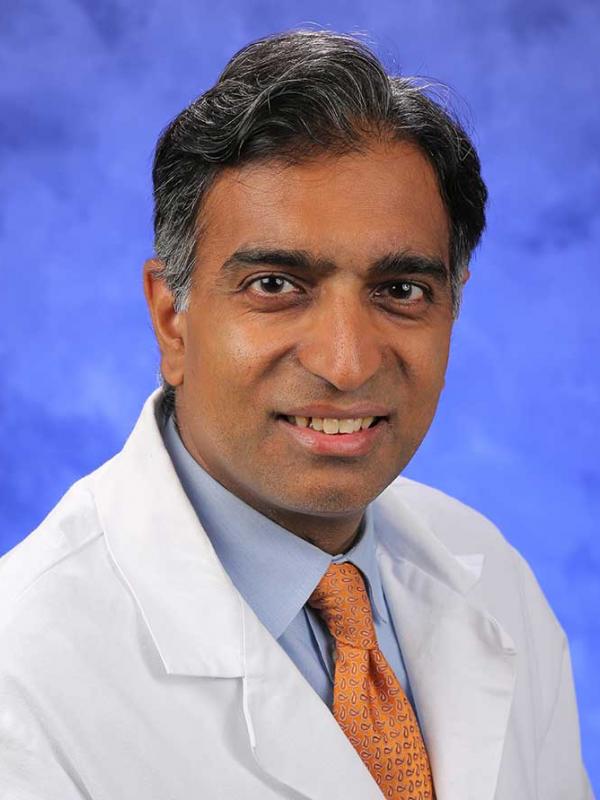Coordinated GI Cancer Care from Diagnosis to Long-term Survival
Gastrointestinal (GI) cancers are among the most complex malignancies to treat; often, patients present with advanced disease and survival rates tend to be low. In 2005, a small group of hepatobiliary surgeons at Penn State Health Milton S. Hershey Medical Center came together and formed the Liver, Pancreas, and Foregut Tumor Program to deliver state-of-the-art, multidisciplinary care for this difficult to treat patient population. The group has grown over the years to include four hepatobiliary surgeons: Kevin Staveley O’Carroll, MD, PhD, director of the Liver, Foregut and Pancreas Program; Niraj J. Gusani, MD, MS, FACS; Jussuf T. Kaifi, MD, PhD; and Eric T. Kimchi, MD, FACS
The multidisciplinary and coordinated nature of the program is unique to the central Pennsylvania region. Patients admitted into the program receive coordinated care from a team of surgeons, gastroenterologists, hepatologists, medical oncologists, radiation oncologists, radiologists, geneticists, and psychiatrists. Diagnostic questions are optimally clarified by modalities such as endoscopic ultrasound and computed tomography, with expert gastrointestinal pathologists providing immediate interpretation when biopsy procedures are necessary, resulting in high diagnostic accuracy with less repeat procedures. Such facets of the program allow surgeons to optimally address the challenges of tumor removal in these cases.
Kimchi explains, “All of the surgeons have completed specialized fellowships in addition to their general surgical residency. Our level of clinical focus on this set of cancers allows us to gain skill with cutting-edge techniques for particularly challenging cases.”
Laparoscopic tumor removal or ablative techniques in particular are gaining ground, as they offer an equivalent level of effectiveness while leading to less post-operative pain and shorter recovery times.
Most patients who successfully complete acute surgical treatment enter into a GI Cancer Survivorship Clinic. Gusani explains, “The Survivorship Clinic began in 2009 to offer coordinated follow-up care for patients who have undergone any GI or abdominal surgery; 95 percent of the approximately 100 patients we see every month are cancer survivors. This clinic is unusual in that it is led by a group of GI surgeons who recognized that long-term care of GI cancer survivors tends to fall through the cracks and needs to be centrally coordinated.”
As highlighted in a recent issue of the Journal of Clinical Oncology, there is growing awareness in the medical community of a need for survivorship care that includes nutritionists, social workers, psychologists, and nurse practitioners, in addition to routine GI cancer monitoring. The combination of the Liver, Pancreas, and Foregut Tumor Program with the GI Cancer Survivorship Clinic means that patients with some of the most challenging and complex malignancies receive coordinated care beginning upon initial diagnosis and continuing through to long-term survival follow-up.

Niraj J. Gusani, MD
Associate Professor of Surgery, Medicine and Public Health Sciences
Penn State College of Medicine and Penn State Cancer Institute
Phone: 717-531-6261
Email: ngusani@pennstatehealth.psu.edu
Fellowship: Surgical Oncology Research, Memorial Sloan-Kettering Cancer Center, New York, NY; Surgical Oncology, University of Pittsburgh Medical Center, Pittsburgh, Pa.
Residency: Surgery, General, University of Chicago Medical Center, Chicago, Ill.
Medical School: University of Pennsylvania School of Medicine, Philadelphia, Pa.
Connect with Penn State Health Gastroenterology and Hepatology on Doximity

